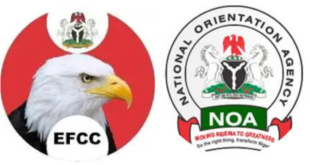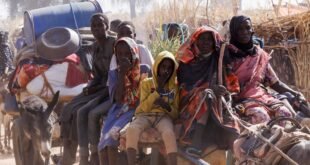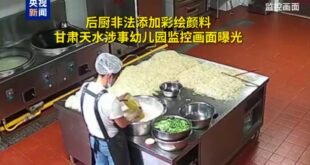The Supreme Court last week granted full autonomy to the country’s 774 local government councils.
In the same week, the duo of former Senate President, Anyim Pius Anyim and the Peoples Democratic Party (PDP) gubernatorial candidate in the 2023 Ebonyi State governorship election, Obinna Ogba, joined the All Progressives Congress (APC).
This story and three others we tracked dominated public discourse in the country last week.
1. Supreme Court decision on LGA autonomy

On July 11, the highest court granted full financial autonomy to the country’s local councils.
The court, while deciding a lawsuit filed by the Federal Government, ruled that the action of the state governor in withholding funds budgeted for local government administration was unconstitutional.
Justice Emmanuel Agim, who delivered the lead judgment on this landmark judgment, also held that it was unconstitutional for state governments to withhold and utilize allocations meant for LGAs on their behalf without transferring them to them as provided for in Article 162(3) of the Constitution.
He said: “This dubious practice that has been going on for over two decades is a direct violation of Article 162 of the 1999 Constitution as amended.”
Why this is important
The Supreme Court by its historic judgment has freed the local councils from the clutches of the governors who hitherto fed the masses at the third level while the people who should have been the primary beneficiaries at this level of government suffered from the corruption caused by the greed of a handful of elites.
This development therefore means that local councils are now in a better position to carry out their mandate to the people while citizens in turn can now hold local councils accountable for their actions.
2. Anyim, Obinna Ogba join APC

Former Senate President, Pius Anyim, on July 13 dumped the Peoples Democratic Party (PDP) and moved to the All Progressives Congress (APC) in Ebonyi State.
Anyim switched to the APC along with some of his supporters during the final round of the APC campaign for the local government elections in Abakaliki, the state capital.
He was joined in the APC by the PDP governorship candidate in Ebonyi State, Senator Obinna Ogba, and from the Labour Party, Chief Edward Nkwegu.
In his remarks at the forum, Anyim said: “When I wanted this to happen, former Governor Dave Umahi was not ready and when he wanted it to happen, the outcome was not what we wanted.
“However, we thank God that everything went smoothly because now we are all under one roof.”
Why this is important
The defection of frontline members of the main opposition party to the APC has reaffirmed the old adage that politics is a game of interests that quickly override previous relationships in pursuit of personal goals.
Given how politicians who previously left the party were quick to backtrack when things did not go according to plan, how things will play out between the former PDP and APC faithful will be of great interest to Nigerians in the coming months.
3. Fubara rules out return of Wike loyalists to Rivers Assembly

Rivers State Governor Siminalayi Fubara on July 11 ruled out the return of 26 lawmakers who defected from the Peoples Democratic Party (PDP) to the All Progressives Congress (APC) to the state House of Representatives.
Fubara, who spoke when opinion leaders, women and youths from Etche and Omuma Local Governments led by Ogbakor Etche visited him at the Government House in Port Harcourt, said the lawmakers would never return to the Assembly.
ALSO READ:QuickRead: El-Rufai sues Kaduna Assembly. Four other stories we tracked and why they matter
He insisted that their seats remain vacant despite a court order for them to be restored.
The governor said: “Don’t pay attention to those who are daydreaming. They think we are still sleeping. Let me tell you so that they can hear wherever they are.
“We all know how they crossed over to join the APC. And how did they cross over? Because of our God. If they made that mistake, they will go, and they will go.”
Why this is important
The governor’s statement is an indication that peace may not return to the Assembly and the state as a whole anytime soon.
The reluctance of all parties in the conflict to accept peace means the country will continue to be in turmoil for some time and this does not bode well for the Nigerian economy given Rivers’ position as a major oil producing state.
The developments also strengthen calls for a tougher approach such as an executive order to unite all warring powers.
4. PDP dismisses National Deputy Chairman, Dan Orbih

The Peoples Democratic Party (PDP) National Working Committee on July 10 suspended its National Deputy Chairman (South-South), Dan Orbih, for alleged anti-party activities.
PDP National Publicity Secretary, Debo Ologunagba, who confirmed the suspension in a statement on Wednesday in Abuja, said Orbih’s actions and comments during the Edo State governorship primary were inconsistent with the party’s constitution.
The statement read: “The National Working Committee (NWC) of the Peoples Democratic Party (PDP) at its 588th meeting today, Wednesday, July 10, 2024, considered all issues, including complaints about the activities of the National Deputy Chairman (South-South) Chief Dan Orbih in relation to the September 21, 2024 Governorship election in Edo State.
“The NWC at the meeting unanimously condemned the shameful actions and utterances of Chief Dan Orbih relating to the Edo State Governorship Election of our great Party, whose actions and utterances are inconsistent with the provisions of the PDP Constitution (as amended in 2017) and the demands of his office as a national officer of the Party.”
Why this is important
The suspension of the national deputy chairman may have further hampered the PDP’s performance in preparing for the governorship election in Edo State.
The developments are another sign that the party is entering the election as a divided force and may face defeat on September 21.
5. Ndume on Tinubu’s closed door policy

Senate Speaker Ali Ndume on July 10 said President Bola Tinubu’s secretive policies had contributed to the country’s woes.
Ndume, speaking on BBC Hausa Service, said even some ministers could not access the President.
He said: “The main problem with this government is that its doors are closed, to the point that some ministers cannot meet the President, not to mention members of the National Assembly, who do not have the opportunity to meet him and discuss issues that affect their constituencies.”
Why this is important
Criticism of the president by senior members of the ruling party suggests cracks in the government and the party itself.
The discontent of APC members and elders, especially those who played a key role in the party’s success in the 2023 elections, could spell doom for the party ahead of the next national elections.
This coupled with anger in the country over the hardships caused by some of his policies, means Tinubu’s government faces an uphill battle in its bid to extend its rule in Aso Rock beyond 2027.
QuickRead post: Supreme Court ruling on LGA autonomy. Four other stories we’re tracking and why they matter first appeared on Latest Nigeria News | Headlines from Ripples Nigeria.
 JamzNG Latest News, Gist, Entertainment in Nigeria
JamzNG Latest News, Gist, Entertainment in Nigeria









